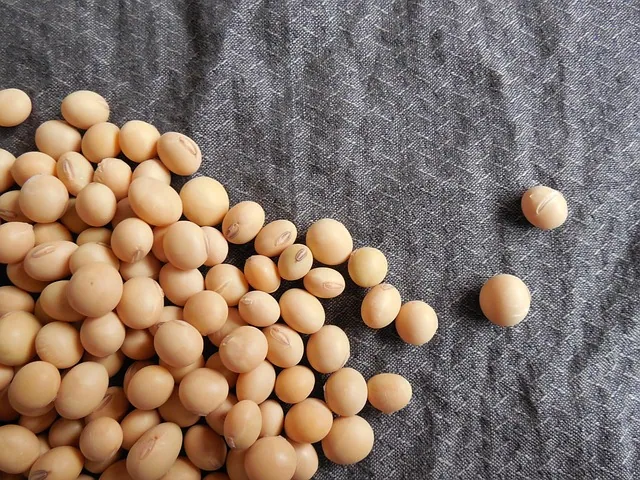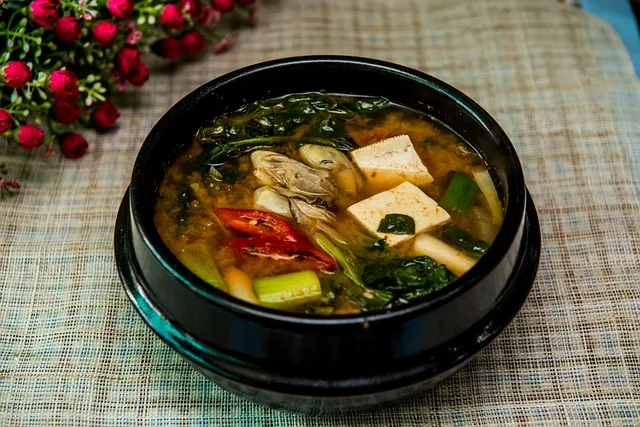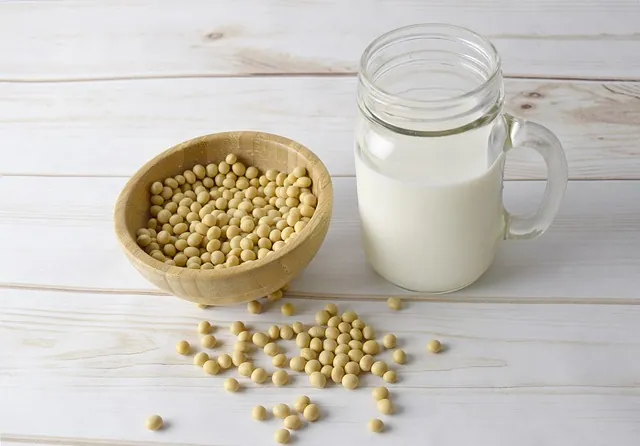The popularity of soybeans, also known as soya beans or simply soy, has literally exploded in the past couple of years. According to Future Market Insights, the soy food products market may grow at a compound annual growth rate (CAGR) of 5.1%, up from USD 45 billion in 2022 to USD 73 billion in 2032. The main reason behind soy’s tremendous popularity is its high protein content. And in this article, we explore the quality of soy protein and how it potentially differs from animal protein.

What Is Protein And Why Do We Need It??
Proteins are a class of nitrogenous organic compounds necessary for the healthy growth and development of all living organisms. These compounds contain large molecules composed of one or a series of long chains of amino acids.
Protein is regarded as the second-most important nutrient, coming only after water. The nutrient is especially useful in making up the structural components of body tissues. It comprises the skin, visceral organs & tissues, muscles, bones, cartilage, hair, and even nails. Note that the human body comprises at least 10,000 different proteins. More interestingly, the body requires a consistent replenishment of these nutrients every day.
We also require protein for normal immune function. Besides, the nutrient is involved in several cellular processes.
As protein is such an essential requirement, it’s imperative to invest in foods that provide an abundance of this nutrient. Fortunately, there’s no shortage of protein-rich foods. These include both plant protein from sources like soy and animal protein from sources such as chicken that are fed quality animal nutrition.
Opinion seems divided on the healthier choice between plant and animal protein. Some people consider plant protein to be the better choice, while others tend to give more credit to animal protein. There are also those who believe that both types are equally useful and that none is superior to the other.
Most people who consider plant protein as a superior choice to animal protein also rank soy as one of the healthiest plant-based protein sources. But is soy protein really better than animal protein?

Essential And Non-essential Amino Acids
Protein is made up of functional groups called amino acids. The nutrient contains up to 20 different amino acids that are interconnected in a chain. Of the 20 amino acids, 11 are nonessential, while 9 are essential.
Nonessential amino acids are those that the body can synthesize on its own. They include alanine, glycine, glutamine, glutamic acid, aspartic acid, asparagine, cysteine, arginine, tyrosine, serine, and proline. However, essential amino acids must come from the foods that we consume.
Since the body can produce nonessential amino acids, it doesn’t really matter whether a plant or animal food source is rich in these compounds. The focus should then shift to the essential amino acids.
Below are the essential amino acids, along with their primary functions in the body;
- Phenylalanine – Acts as the precursor to a variety of neurotransmitters, including dopamine, tyrosine, epinephrine, and norepinephrine.
- Histidine – Supports the production of the neurotransmitter histamine.
- Valine – A three branched-chain amino acid (BCAA) that stimulates muscle growth and energy production.
- Threonine – Threonine is a principal component of structural proteins like elastin and collagen. It also stimulates metabolism and aids immune functions.
- Leucine – Another BCAA on this list, leucine is involved in protein synthesis, muscle repair, and wound healing.
- Methionine – Aids food metabolism, detoxification, and the absorption of zinc and selenium.
- Tryptophan – Serves as a precursor to the neurotransmitter serotonin.
- Isoleucine – The last BCAA on this list, isoleucine supports muscle metabolism, hemoglobin production, energy regulation, and immune function.
- Lysine – Plays a role in calcium absorption, protein synthesis, energy production, and the production of collagen, elastin, hormones, and enzymes.
Both plant and animal products can provide all the above essential amino acids. Soy, in particular, is abundant in all essential amino acids.
Soy Protein Versus Animal Protein In Terms Of Essential Amino Acids
According to the U.S. Department of Agriculture (USDA), a 100-gram serving of soy provides as many as 36 grams of protein. Here’s how a similar serving amount of common protein-rich animal products compare to soy;
- Turkey – 29 grams
- Pork – 27 grams
- Beef – 26 grams
- Salmon – 20 grams
- Eggs – 13 grams
Based on these figures, it’s evident that soy contains a higher protein percentage than similar serving amounts of any animal protein source. It’s undeniably true that the figures mainly address protein quantity in general. However, the theoretical implication is that there’s an equally higher percentage of essential amino acids in soy than common animal protein sources.
Soy Protein versus Animal Protein – Overall Nutrition

Not only is soy protein superior to animal protein, but soya beans also contain many other nutrients that make them a preferable choice.
For instance, soy is high in dietary fiber. This nutrient plays several roles in the body, including aiding digestion and promoting bowel movements.
Soy is also rich in the healthier monounsaturated fats compared to animal protein sources that tend to contain more saturated fats and cholesterol. And like most plants, soybeans are chockfull of antioxidants.
The implication is that soy provides superior protein quantity in addition to other useful nutrients, while most animal protein sources may predispose you to various health issues. Therefore, soy is also the clear winner as far as overall nutrition is concerned.
Summary
Soy protein is demonstrably superior to animal protein. However, note that it all comes down to the type of soy products you consume.
Expectedly, whole soybeans would contain more protein than refined soy. The conventional wisdom is to insist on unprocessed and unrefined products if you wish to maximize soy’s immense health benefits.







